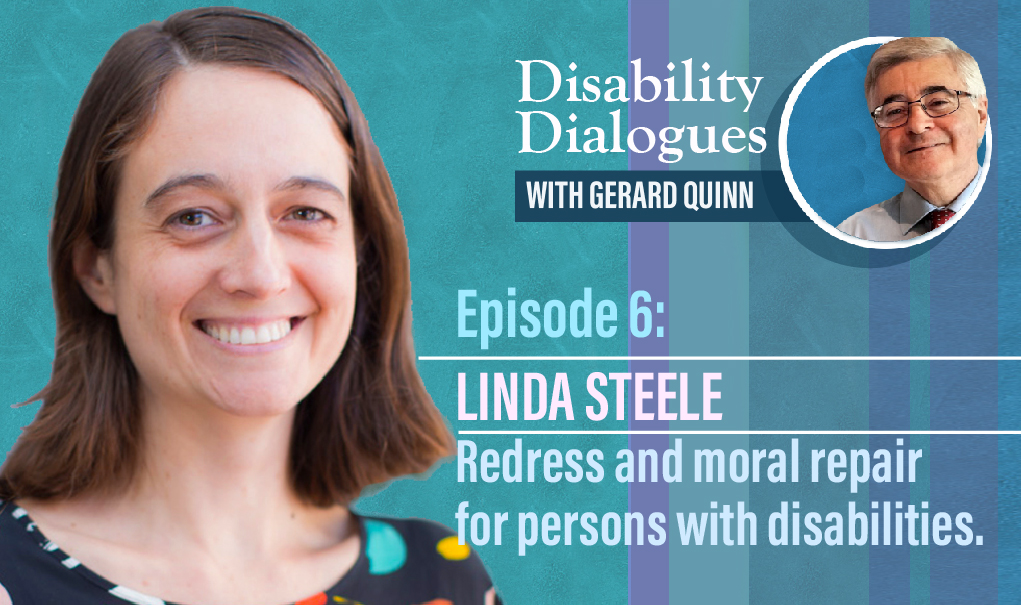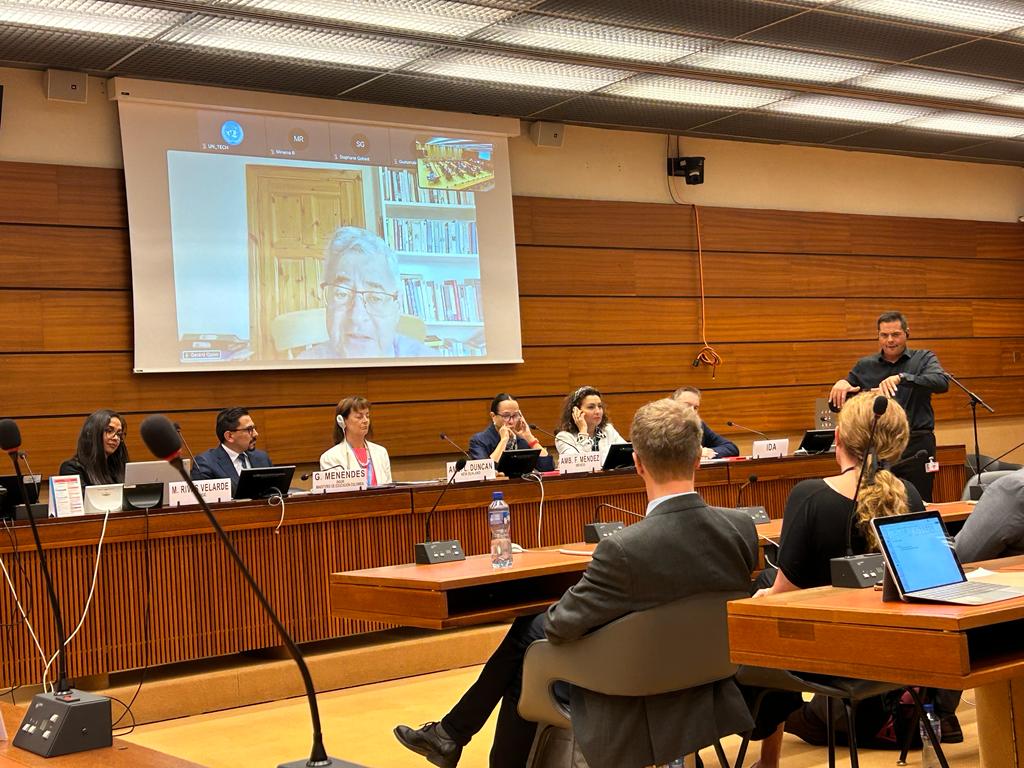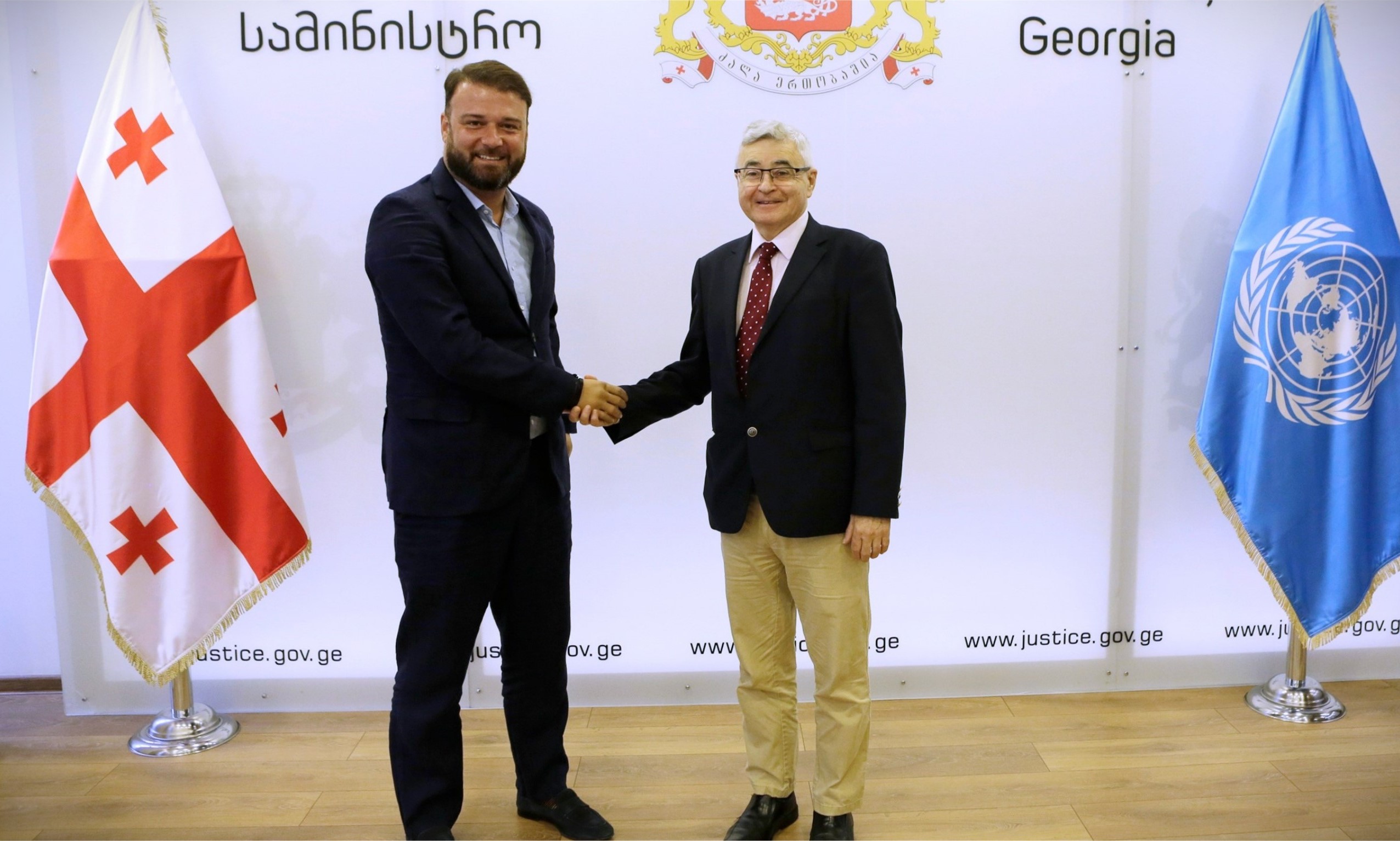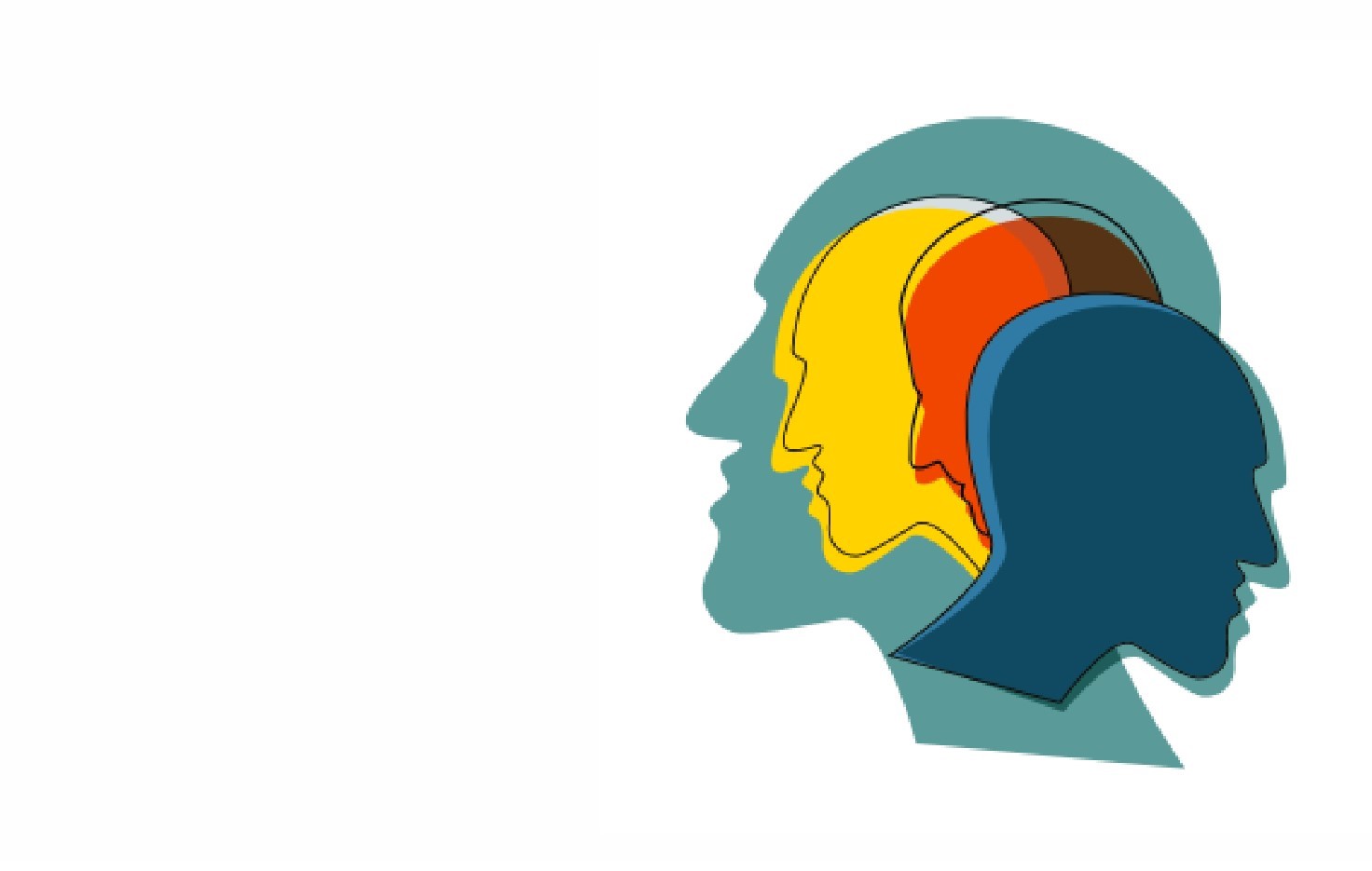The EU has good reasons to be proud of the direction it has taken over the past 30 years. It's experience is a good reference for other regional organizations throughout the world.
(Transcript of Gerard's remarks at the Panel on International Instruments, Brussels, Nov 24, 2022)
I remember well when the first European Day was convened in the early 1990s. You have come a long way and are indeed an inspiration to other regions round the world.
In the time available I want to do just three things.
-----
First of all, let me say a few words about my role. Not many know about the role of a Special Rapporteur and it is important to put it in context before describing my work as it relates to the European Union.
Secondly, let me talk briefly about my 'Country visit' to the EU - the progress made, the hopes inspired and the challenges remaining.
And thirdly, let me say a few words on the big challenges for the EU as I see them. It was once said that 'repose is not the destiny of man.' Even though much has been achieved - and it is important to openly acknowledge this - much remains to be done. We are indeed fortunate that Europe is an open democratic system - always eager to learn, aways eager to innovate always willing to change if that is what is needed for its citizens.
----
But first of all my role as Special Rapporteur - what is it?. The way I see it, I perform three basic functions as Special Rapporteur.
The first is the shine a light on topics or issues that might otherwise not see the light of day. I bring these issues to the attention of the UN General Assembly in New York and the UN Human Rights Council in Geneva. I choose what the themes are.
When interviewed for the post two years ago I said I wanted to connect the disability rights agenda more visibly to grand challenges facing humanity - like armed conflicts and disability, like peacebuilding and disability, like Artificial Intelligence and disability, like climate change and disability. And I said I wanted to bring more intersectional perspectives to bear - like the importance of community living for both persons with disabilities and older persons. And I said I wanted to focus on groups often left out of the picture like refugees with disabilities, and indigenous persons with disabilities.
Much of that work is underway and our next thematic report will be on the transformation needed in services to make the goal of independent living a reality for all.
Secondly, I shine a light on countries through whats called 'country visits.'
A few basic points about this. A country need not have ratified the UN CRPD for me to propose a visit. Indeed, I could propose a 'visit' to a UN agency like the WHO that by definition has not ratified the CRPD. Thankfully the EU - as such - has ratified the treaty.
Also, I am not a treaty monitoring body. That is to say, I do not - because I cannot - reach definitive legal conclusions on whether a country is or is not in compliance with the treaty. That not the purpose of a 'country visit.'
The fundamental purpose of a 'country visit' is to do a deeper assessment of the factors facilitating progress and the challenges remaining. It is to uncover the theory of change within each system and to suggest ways in which change might be better directed or accelerated and how third parties like donors can help.
My country reports don't sit on shelves. They get openly debated in the UN system and are often taken on board by treaty bodies.
Because of COVID-19 this work was delayed. I have now completed two such 'country visits' - one to the EU, and one to Jordan. Next up in 2023 are Botswana and Georgia.
Thirdly - and very few people know this -I (along with all other Special Rapporteurs) can entertain complaints and relay them to Governments in the form of 'communications.' The basic idea is to broker amicable solutions. Interestingly, your country need not have ratified the UN CRPD to enable me to do this.
In the interests of time let me proceed to the EU country visit - but I am happy to take questions on this 'communications' procedure later.
The EU 'country visit took place over the space of 2 weeks in March this year. The welcome provided and the organization of the visit was first rate. It is obvious that the EU is proud of the direction of travel it has engaged in over the past 30 years and eager to show others - especially other regional organizations throughout the world - the kind of impact they can have.
This was one of my main motivations for the visit - what lessons can be learned by other regional bodies who are now beginning to step up. A really good example is UNESCWA in the Arab region that is beginning to do highly impactful work trying to add regional value to the implementation of the CRPD by its Member States.
At the conclusion of my 2 week visit I published an end-of-mission statement. This forms the basis of a longer report which has been finalized but is winding its way through the UN system as we speak.
It should be finally in the public domain in a few weeks time. Let me confine my remarks to the end-of-mission statement out of deference to the fact that the final report is not yet in the public domain.
What was especially impressive to me - after visiting many services and Institutions of the Union - was that the disability rights agenda wasn't any longer hidden away in a corner.
Its exponents extended across many different services. I was impressed that all of them were motivated to find solutions for themselves within their own special policy domains. They did not need to be prompted.
To have such a broad level of ownership is the key to sustainable change. I was especially impressed by DG-NEAR and the EU High Representative for Human Rights. Obviously, this commitment is uneven across the system - but that is to be expected and requires continual support. But the overall trajectory was positive.
With respect to foreign policy, the EU has an important global presence. EU foreign policy is certainly taking into account the disability rights agenda. Given that the CRPD is, to date, the only universal treaty on human right that it has ratified, it would be fitting if the EU were to take more of a leadership role in the relevant global debates.
More practically, the EU could also lead by assisting other regional organizations to add value to the efforts of their own Member States? It certainly has a lot to offer from its own rich experience. As you will have seen from the recent excellent ENIL paper on EU development assistance and institutionalization around the world, the gap between principle and practice needs to be constantly monitored and closed. I feel that work has just begun.
In terms of the overall institutional architecture of change I did feel that there was a need for some more intentional form of co-ordination between the different EU Institutions. This is inherently hard to do when the autonomy of these Institutions is vital to secure the European public interest. Yet, there should be a way to preserve Institutional autonomy consistent with reducing fragmentation and advancing coherence.
You all know about the gaps in legislation -and I will not dwell on them nor add my voice to those of many others.
A few policy domains disappointed - one had to do with continued EU funding of congregated settings and another had to do with internal staff rules and regulations.
On deeper reflection, these drawbacks are probably a hangover from a policy period when impairment was the dominant factor in determining rights - not the human being behind the impairment. The move away from the 'medical model' is uneven.
Let me allude to two facts of the new (October 2022) CRPD Guidelines on Deinstitutionalization to help make the point.
Unlike the past, the Guidelines start with the proposition that unequal treatment in the form of institutionalization is discrimination - simplicitor! Its strange how this simple proposition seems so hard to accept by those responsible for EU funding. It was embraced by the US Supreme Court nearly 25 years ago - and then without the benefit of a CRPD!
Secondly, the Guidelines emphasize that size is not all that matters. There is a myth that progressively reducing the size of institutions amounts to 'progressive realization' of the right to live independently. The CRPD Committee points to other factors that make even the smallest of group homes questionable. In this, they are actually just echoing what the EU Fundamental Rights Agency advised the EU as far back as 2018.
Of course, this places a premium on developing a wholly different kind of service paradigm - but thats where the EU excels. And thats why I call on the EU in my end-of-mission statement to acknowledge institutionalization as a form of discrimination and to build on its strengths to help its Member States build up a completely different service paradigm.
In as much as related policy positions or papers by the Services underpin the acceptance of some forms of institutionalization (joint Cabinet consensus paper, advice from the Legal Service, among others) I call on the EU to withdraw and reconsider the same.
Many complaints have been made to the Commission in this regard. To date, no actions have been taken to initiate funding corrections. This too has to change. Otherwise, the faith placed in the EU by its citizens with disabilities as a rules-based organization that takes its international legal responsibilities seriously will be needlessly eroded.
I was also struck by the hangover of the 'medical model' in the internal workings of the Commission. The broad - almost fishing expeditions - done by the medical services to detect impairments prior to, or preparatory, to employment - struck me as odd and outdated and not in keeping with the spirit if not the letter of the EU Framework Directive - much less the CRPD.
The involvement of the medical services in identifying 'reasonable accommodation' also struck me as odd and outdated. Much valuable work is being done in the field of HR in the EU services. It struck me that some sort of review or stock-taking of the place of the 'medical model' in the staffing process is overdue.
Last, but not least, European civil society is vibrant and strong. Continued EU support isn't just morally important. The rationality of governance systems going forward - their preparedness to meet the challenges of the 21st century - depends on have the right voices at the table.
This strong feature of co-production and citizen engagement is the true virtue of the European system. Thats why the European Day was inaugured and that is why we celebrate it today.





